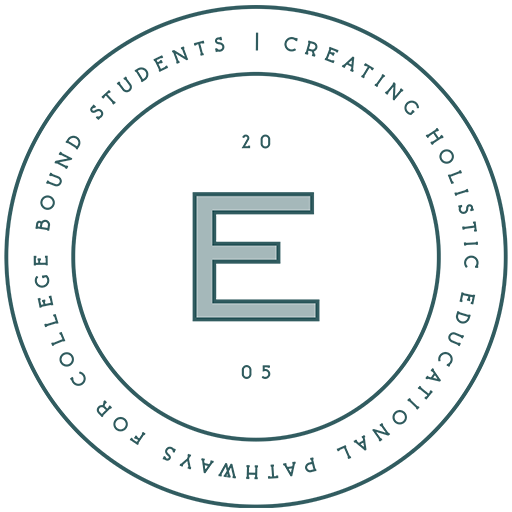ADHD: Let’s talk about it.
Working with students with ADHD who are unorganized, impulsive, and who don’t finish assignments can be challenging. The college application process has become incredibly intense and overwhelming. When you add an ADHD diagnosis, the job as a college counselor, IEC, or Educational Consultant can become chaotic and exhausting.
“All Behavior Comes from Need”
Our students are not purposely trying to “torture” us by procrastinating or not finishing assignments. Instead, they have a DIAGNOSED need that requires support and scaffolding. Let’s flip our thinking from “you aren’t good enough” to “I have your back.” We can transform the learning experience and build trust and alignment!
And let’s call out:
Some of the most unique and brilliant humans on the planet have been diagnosed with ADHD. Many of these people will speak to how tough the teenage years were. They spent so much time “masking” and “getting in trouble.” Doesn’t it make sense that, as IECs and college counselors, we reflect on how WE can tweak our processes to support our future leaders, entrepreneurs, and change-makers?
Supporting students with ADHD in the college application process requires a nuanced understanding of the challenges these students often face. ADHD, or Attention-Deficit/Hyperactivity Disorder, affects a student’s ability to focus, stay organized, and manage time effectively. These are critical skills during the college application phase. The symptoms of ADHD can make the detailed and multi-step process of applying to college more challenging.
Prevalence of ADHD Among Teenagers:
The Centers for Disease Control and Prevention (CDC) estimates that approximately 10.4% of children in the United States between the ages of 2 and 17 have been diagnosed with ADHD. This equates to about 6.1 million children. Among these, a significant number are teenagers. Boys are more frequently diagnosed than girls.
I feel it is our responsibility as college consultants, IECs, and counselors to integrate best practice strategies that can effectively support students with ADHD through the college application process.
Let’s acknowledge these unique needs and implement targeted support. We can help students with ADHD navigate this challenging time with greater confidence and success.
Counselors: Join me for the March Collaborative Conversation on Tips and Tricks for Supporting Students with ADHD Diagnoses
Parents: Attend my Attitude Magazine Webinar on March
Counselors and Parents: Download my Guide to Neurodiverse College Application Process
Unique Challenges for Students with ADHD:
Difficulty with Organization:
Managing the numerous components of college applications, like deadlines, essays, and recommendation letters, can be overwhelming.
⏳ Time Management Issues:
Students with ADHD often struggle with estimating how long tasks will take and may procrastinate or have trouble prioritizing tasks.
Challenges with Sustained Attention:
For students who have difficulty maintaining attention, focusing on lengthy applications and writing multiple essays can be daunting.
Impulsivity:
Making hasty decisions about where to apply or submitting applications without thorough review can result from impulsivity associated with ADHD.
Overwhelm with Multistep Tasks:
The college application process involves many steps, which can be challenging to track and complete for students with ADHD.
Adapting practices to better support students with ADHD can make a significant difference in their college application journey.
Here are ten ways college consultants can tweak their practices!
Implement Structured Planning:
Use visual aids and checklists to break down the application process into smaller, manageable tasks. This helps students with ADHD to see the bigger picture without getting overwhelmed.
Adopt Flexible Communication:
Recognize that students with ADHD may have varying communication preferences and attention spans. Offering options like text, email, video calls, or in-person meetings can accommodate different needs.
⏱ Focus on Time Management:
Teach effective time management strategies, such as using timers for task completion and breaking work into short, focused sessions. This can help students avoid procrastination and manage their workload more efficiently.
Create a Supportive Accountability System:
Set regular check-ins to monitor progress, encourage, and adjust strategies as needed. This can help keep students motivated and on track.
Utilize Technology and Tools:
Introduce students to apps and software designed to improve organization and focus, such as calendar apps, task managers, or distraction-blocking tools.
Personalize Essay Writing Support:
Understanding that students with ADHD may struggle with starting and organizing their thoughts, offer structured brainstorming sessions and outline templates to facilitate the essay writing process.
Highlight ADHD-Friendly Colleges:
Guide students toward colleges with strong support systems for students with ADHD, including academic advising, tutoring services, and mental health resources.
Teach Self-Advocacy Skills:
Encourage students to communicate their needs and advocate for themselves, skills that are crucial for navigating college life with ADHD. Get to know their 504 plan, ask them how they advocate for themselves in the classroom and support them with making a plan for college.
Promote a Growth Mindset:
Foster a positive, growth-oriented environment by highlighting the strengths and unique perspectives that students with ADHD bring to their college applications and future academic endeavors.
❤️ Offer Emotional Support:
Acknowledge the stress and emotional challenges accompanying the college application process for students with ADHD. Provide a listening ear and validate their experiences, reminding them of their capabilities and resilience. Share with them famous people who have been diagnosed with ADHD so they know they are not alone!
If you have any tips or tricks that you use, please share!
If you would like to become certified in Capstone Curriculum so that you can better serve neurodiverse students, please join here!
Want to learn more about how to become a mentor or how to apply this to your practice? Learn about our capstone certification.
Ready to get started in the capstone certification process? Sign up for our upcoming cohort here!
Need help with your college search? Tell Us Your Story here.




